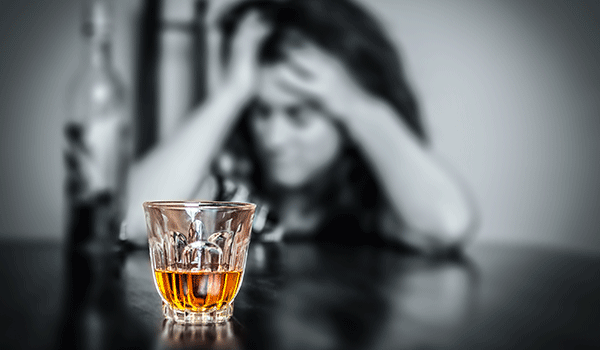
According to the National Institute on Alcohol Abuse and Alcoholism, 88000 people die each year from alcohol-related causes. It is the third leading cause of death among American adults after tobacco use and obesity. An alcohol abuse problem means that a person’s drinking causes distress and harm to themselves and others.
For people who have this problem, it also greatly interferes with their work and productivity.
Realizing that you have an alcohol problem is a difficult thing. After all, who wants to admit that they have a problem? Let alone one that has to do with alcohol? However, realizing that there is a problem is the first step to getting the help you need so that it doesn’t become a fatal issue in the future. In this post, we will go over warning signs that show that you might have an alcohol abuse problem.
Defining Alcohol Use Disorder
First of all, let’s define alcohol use disorder-which includes both alcohol abuse and alcohol dependence.
Alcohol abuse and/or dependence is a disease that causes a person to:
- Have a strong desire or craving to drink
- Lose control and not be able to stop drinking once they have started
- Experience withdrawal symptoms when they don’t drink
- Have a high tolerance for alcohol which means the person has to increasingly drink more to feel the same effect
- Binge drink-this is defined as drinking five or more drinks within two hours for men or drinking four or more drinks within two hours for women.
Health risks associated with alcohol abuse include certain cancers, liver damage, brain damage, heart problems, bodily injury, accidents and death. Thus, this is not a health issue to be taken lightly.
Warning signs you might have an alcohol abuse problem
So how do you know if you have an alcohol abuse problem? Here are 9 warning signs that indicate an alcohol abuse problem:
- You end up drinking more or for a longer time than you planned to.
- You have wanted to cut down on drinking but your attempts have not worked.
- You consistently feel a strong need or craving to drink.
- Drinking is interfering with your ability to work, enjoy family life and relationships.
- You have had to drink more so you can feel the effects of the alcohol.
- You find that you use alcohol as a way to numb stress or emotional pain you’re feeling.
- When you don’t drink alcohol, you experience withdrawal symptoms. Withdrawal symptoms include sleeplessness, shaking, dizziness, headaches, nausea, restlessness and sweating. In severe cases, people going through withdrawal might experience fever, seizures and hallucinations.
- You have “sneaked out” from work or home to get a drink.
- You’ve gotten into dangerous situations after drinking such as a physical altercation or a car accident.
If you answered yes to two or more of these signs over the last 12 months, it is likely you have an alcohol abuse/dependence problem. It’s time to be honest with yourself and seek help.
What to do after you realize you have an alcohol abuse problem
If you’ve read through the list above and find that you can identify with the signs discussed above, it is time to see a health provider to discuss your treatment options. While everyone is different, most people can benefit from a medical treatment for alcohol use disorder. Usually, this involves a combination of medications and behavioral therapy.
Three medications are approved for alcohol use disorder treatment:
- Disulfiram – Disulfiram causes your body to react violently with symptoms like nausea and skin flushing when you drinking. The thought of going through these unpleasant reactions stops many people in their tracks.
- Naltrexone – Naltrexone reduces a person’s craving for alcohol
- Acamprosate – Acamprosate works on your brain to help reduce cravings especially after you’ve quit drinking.
Therapies that help you discover the feelings and situations that compel you to drink and which provide motivation to help you quit are the common types of behavioral therapy available. A lot of people also find support groups like alcoholics anonymous helpful.
Most people who successfully recover from alcohol use disorder use a combination of these three treatment methods. For people who have more severe alcohol problems, residential rehabilitation centers might also be useful for them. Working with your healthcare provider will help you determine which of these (or which combination) will work well for you to quit drinking.
Closing Thoughts
Alcoholism is a real health problem that can interfere with a person’s work and life. If you’re beginning to realize that your drinking is more than something you do socially, seeking help early with keep you from the unfortunate consequences of alcohol abuse.

